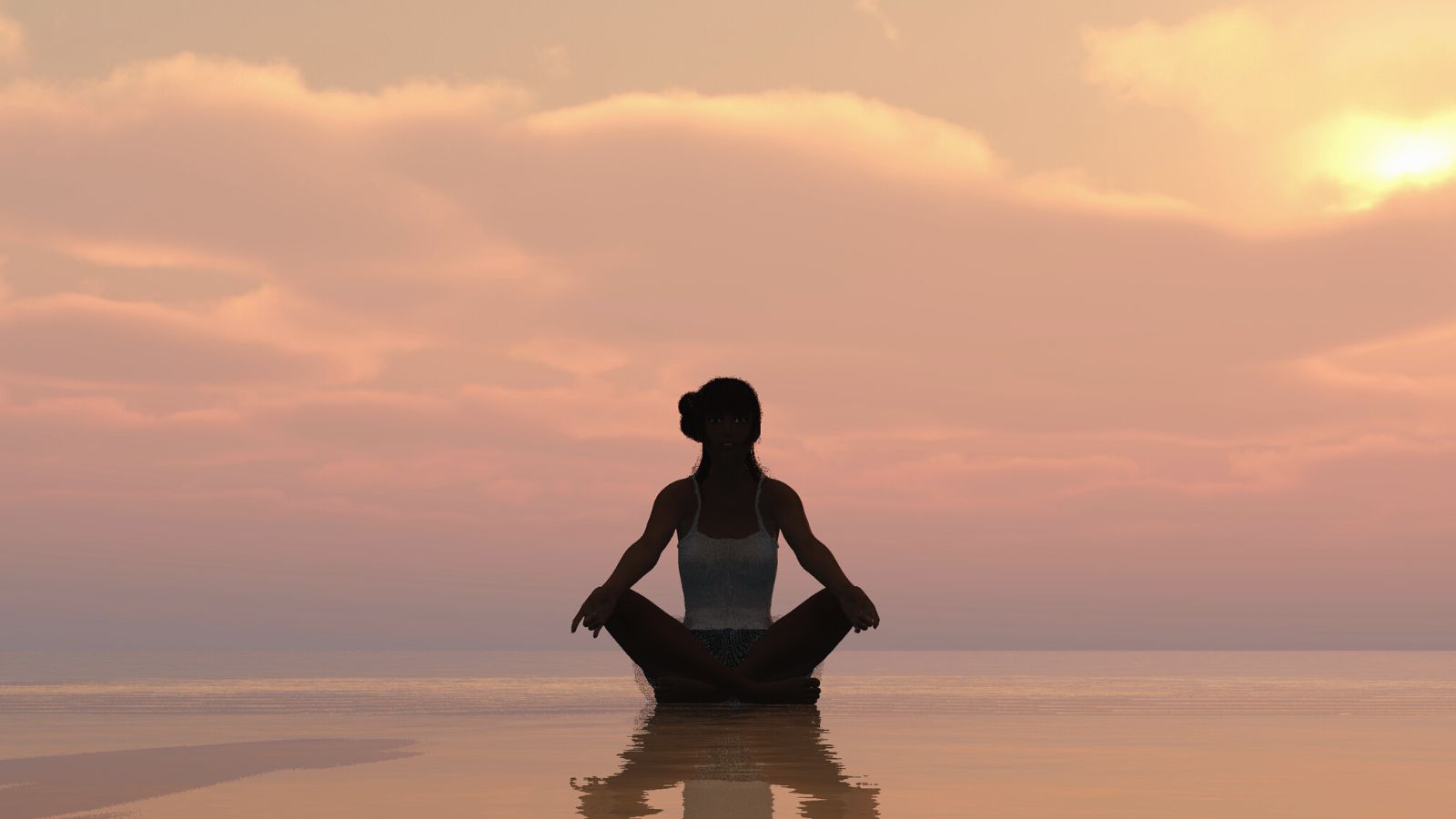If you’re new to meditation, you may envision a remote setting with a meditation practitioner sitting alone atop a hill. Unfortunately, this misconception is what puts many first-time meditators off, especially those who thrive in the company of others. While meditation requires a quiet and calm state of mind, does practicing meditation mean you should live a life of solitude?
In both meditation and solitude, we spend time in our own headspace, getting to know ourselves deeper. Solitude is not required for meditation as you can meditate with others. However, solitude is a state of isolation where you purposely choose to be alone.
So while both can offer the opportunity to reflect and observe ourselves, they are two different things. This article will explain the main differences between the two and discuss if solitude can ever be a negative thing.
Differences between meditation and solitude
Meditation is a practice, solitude is a state
People who integrated meditation into their lives commit to this practice on a regular basis, be it daily or weekly. They may dedicate 10, 20, or 30 minutes to meditation but what is essential is that they do it regularly. As it is a practice, they make a conscious decision to do it regularly, although they can choose to take a break from mediation should they wish.
Solitude is a temporary state that a person usually induces. In solitude, you spend time alone without any contact with other people. It could be for one day, one week, or one month, but it is a one-off or infrequent event. You choose to be in solitude, but it is not something you get up and consciously do each day. Instead, you remain in solitude until you decide otherwise.
Many people meditate to find presence, a state of being in the here and now. However, in a state of solitude, you may reflect on the past and plan for the future.
You don’t have to be alone to meditate
Although the traditional image of meditation a person is sitting in silence alone, meditation is a practice that can be done as a solitary activity or in a group. Nowadays, there are many meditation groups for various styles of meditative practices. These group sessions are ideal for people who would love to share this practice with others.
Meditating in a group does not lessen the effects or benefits of the practice. In fact, in group meditation, you can create much more healing energy than you ever could on your own; thus, group meditation has the power to invoke positive change in a community.
Solitude is a state where we separate ourselves from others, requiring isolation. In most cases, it involves physical separation, but it doesn’t necessarily mean you have to stay in the woods where there is no other person for miles. You can find solitude just as well by spending a week in a calming, peaceful location away from your friends, family, and other people you have regular contact with.
Meditation fits into everyday life
As meditation is a habitual practice that you can do every morning or evening, it doesn’t require you to compromise your work schedule or time with loved ones. Instead, meditation serves as a self-care ritual, a moment you can take for yourself every day.
However, if you choose to enter a state of seclusion, you’ll have to take a break from your work (unless your work does not require interacting with others). You’ll also have to put a temporary hold on your family responsibilities to not be disturbed while you reflect, create or rest.
Solitude can have adverse effects
In our modern-day lifestyles, we often seek meditation to calm our busy minds and solitude to disconnect from the constant stimuli and go within. However, while meditation only has positive benefits, isolation can negatively affect some people, such as inducing feelings of loneliness.
Another negative side of solitude can be a feeling of abandonment, such as when someone is put in solitary confinement. Meditation does not create negative emotions like this unless the practice brings up already-present feelings and sensations.
Can you combine solitude and meditation?
Many people who decide to take a retreat in a remote location to find solitude will spend some of that time meditating. Therefore, it is certainly possible to combine them. Seeking solitude is also one of the best ways to achieve deep meditation, as you will be totally free from distractions from others.
You can combine solitude and silence meditation retreat to experience the power of both. Throughout the retreat, you spend a large part of the day meditating in the same room as others but do not speak with them to remain in your own headspace.
If you are interested in experiencing both meditation and solitude, try Vipassana meditation or silence retreats organized by the Art of Living foundation. The latter can be found in your own country, as the foundation has meditation centers around the world.
Are solitude and loneliness the same thing?
Loneliness is often compared to solitude and isolation, but this is incorrect. Loneliness is a feeling that we have not chosen, but solitude is a decision to be alone. The definition of loneliness is “sadness because one has no company” and thus is a negative emotion. However, solitude can (and often is) be a positive thing. If you choose to be alone and do not feel sad about it, you certainly are not lonely.
Most people in solitude do not experience loneliness as they enjoy the chance to observe themselves without any influence from others. Whether you will feel lonely in isolation or not will largely depend on whether you enjoy spending time alone.
If you are someone who turns down invites to social events to spend an evening alone on the couch with your favorite book, solitude will likely be a positive experience. However, if you fill all your free time with social activities and feel bored whenever you are alone, you may find solitude challenging.
How solitude can help you overcome loneliness
In today’s society, we believe that connecting with others is the medicine of loneliness. As a result, we actively avoid solitude. With all the technology we now have at our fingertips, we have never been more (virtually) connected with each other. However, studies have shown that one in five Americans rarely or never feel close to others, despite this.
Moreover, many people who move to a big city report that they feel lonelier than ever before, despite constantly being around large crowds. This is because loneliness is not about your external world but your inner state. If you are not happy within yourself, you will feel lonely whether you are in a secluded cabin in Alaska or on the busy streets of New York.
The more you look to other people or things to make you feel entertained and fulfilled, the more you will struggle whenever you find yourself alone. Instead, if you purposely choose to have moments of solitude and stillness each day, you’ll become familiar and accustomed to your own company. Over time, being alone won’t seem so terrible, and once you overcome your fear of loneliness, you’ll be able to experience the benefits of solitude.
Final thoughts
Having time to yourself is critical for your personal growth as it allows you to get to know yourself better and uncover your passions and interests. Meditation and solitude are two ways to spend time alone, but they have some distinct differences.
With meditation, you can enjoy short periods of alone time amidst your busy life. Solitude allows you to step away from everything and everyone to focus entirely on yourself for a more extended period.








